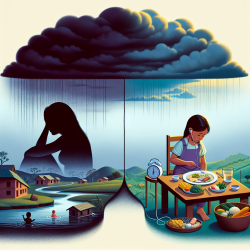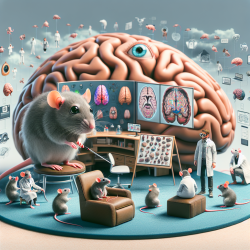Introduction
As a practitioner dedicated to enhancing child development, understanding the multifaceted influences on children's health is crucial. A recent study, "Maternal depression is associated with less dietary diversity among rural Nepali children," sheds light on the significant impact maternal mental health can have on children's nutrition. This blog explores the study's findings and suggests ways practitioners can integrate this knowledge into their practice to foster better outcomes for children.
The Study: Key Findings
Conducted by Miller et al. (2021), the study involved 629 children aged 23-66 months in rural Nepal. It revealed a 21% prevalence of maternal depression, which correlated with reduced dietary diversity in children. Specifically, children of depressed mothers were 11% less likely to consume an additional food group and 13% less likely to consume an additional animal source food compared to those with non-depressed mothers.
Interestingly, the study found no direct association between maternal depression and children's anthropometry or development. Instead, these outcomes were more closely linked to the quality of home child-rearing, the mother's education, and household wealth.
Implications for Practitioners
Understanding the link between maternal depression and dietary diversity offers valuable insights for practitioners. Here are some actionable steps:
- Screen for Maternal Depression: Incorporate mental health screenings into your practice to identify at-risk families. Early detection can lead to timely interventions.
- Promote Nutritional Education: Educate families about the importance of dietary diversity. Encourage the inclusion of various food groups to ensure balanced nutrition for children.
- Collaborate with Mental Health Professionals: Build a network with mental health experts to provide comprehensive support for families dealing with depression.
- Advocate for Holistic Interventions: Support initiatives that address both mental health and nutritional needs, recognizing their interconnectedness in child development.
Encouraging Further Research
The study highlights the need for further research to explore the underlying mechanisms of how maternal depression affects child nutrition and development. Practitioners are encouraged to stay informed about emerging research and consider participating in studies that aim to unravel these complex relationships.
Conclusion
By understanding the relationship between maternal depression and child nutrition, practitioners can enhance their interventions, ultimately contributing to improved child health outcomes. This study serves as a reminder of the importance of considering mental health in the broader context of child development.
To read the original research paper, please follow this link: Maternal depression is associated with less dietary diversity among rural Nepali children.










